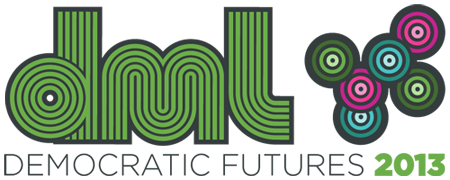21C: Starting with the Digital Self: Youth Civic Engagement in the 21st Century
Some stereotype youth as apolitical while others highlight how youth redefine their political participation utilizing social media in nuanced ways. Our panel examines these opposing views by describing the actual practices of high school students engaged in various forms of civic participation.
Considering that the average American youth spends more than ten hours a day with digital media -- with minority youth averaging four and a half more hours per day than their White counterparts (Center of Media and Human Development, 2011) -- it is imperative that youth are taught how to make meaning of and produce media that empower them to become active members of their communities. This is particularly salient for students of color who spend more time with digital media and whose civic participation and political involvement are often amongst the lowest (Kahne, 2008).
Seeking to understand the relationship between youth digital media engagement and civic participation in schools, this panel’s three research studies examine youth civic digital engagement in secondary classrooms. All three studies took place in “Exploring Computer Science” (ECS) classrooms whose core mission is to democratize access to CS learning. ECS engages secondary students with college-preparatory CS knowledge through inquiry-based projects related to students’ personal interests. Funded by NSF, this university/K-12 partnership with the Los Angeles Unified School District (LAUSD) has grown over 500% in three years, enrolling over 2000 predominately Latin@ and African American students.
The first panelist examines the process of one female Mexican-descent student, Itzel, bridging her ancestral praxis to CS learning as a positive approach to broaden participation in CS. The study explores identity and agency in the figured world of ancestral computing—critically situating computation from a familial perspective of communal vision. Itzel demonstrates civic participation by sharing her research with the schooling community as well as teaching her mom how to use a programming tool for use at her church.
The second panelist focuses on the possibilities of digital media to improve critical literacies and computational thinking practices through the creation of a video game about issues in the students’ lives and their community. These projects were created with the express purpose to initiate social change through dissemination and game play. This study illuminates the potential of leveraging students’ digital literacies and cultural capital, while teaching computational skills in programming about the macro sociopolitical issues that influence their everyday lives.
The third panelist explores what students in three different classrooms learned about the power of data, their personal abilities to be researchers, and their potential responsibilities in representing their communities through the “Mobilize” project. Using mobile phones, phone apps, and web services to conduct community research--a process otherwise known as “participatory sensing”--students learned how to collect and analyze their own data about snacking habits and billboard advertisements in a civic engagement campaign.
The panel will begin by discussing the audience’s vision for youth civic participation followed by a description of the three research projects. The panel’s goal is to welcome a fluid dialogue with the audience for sharing ideas.



